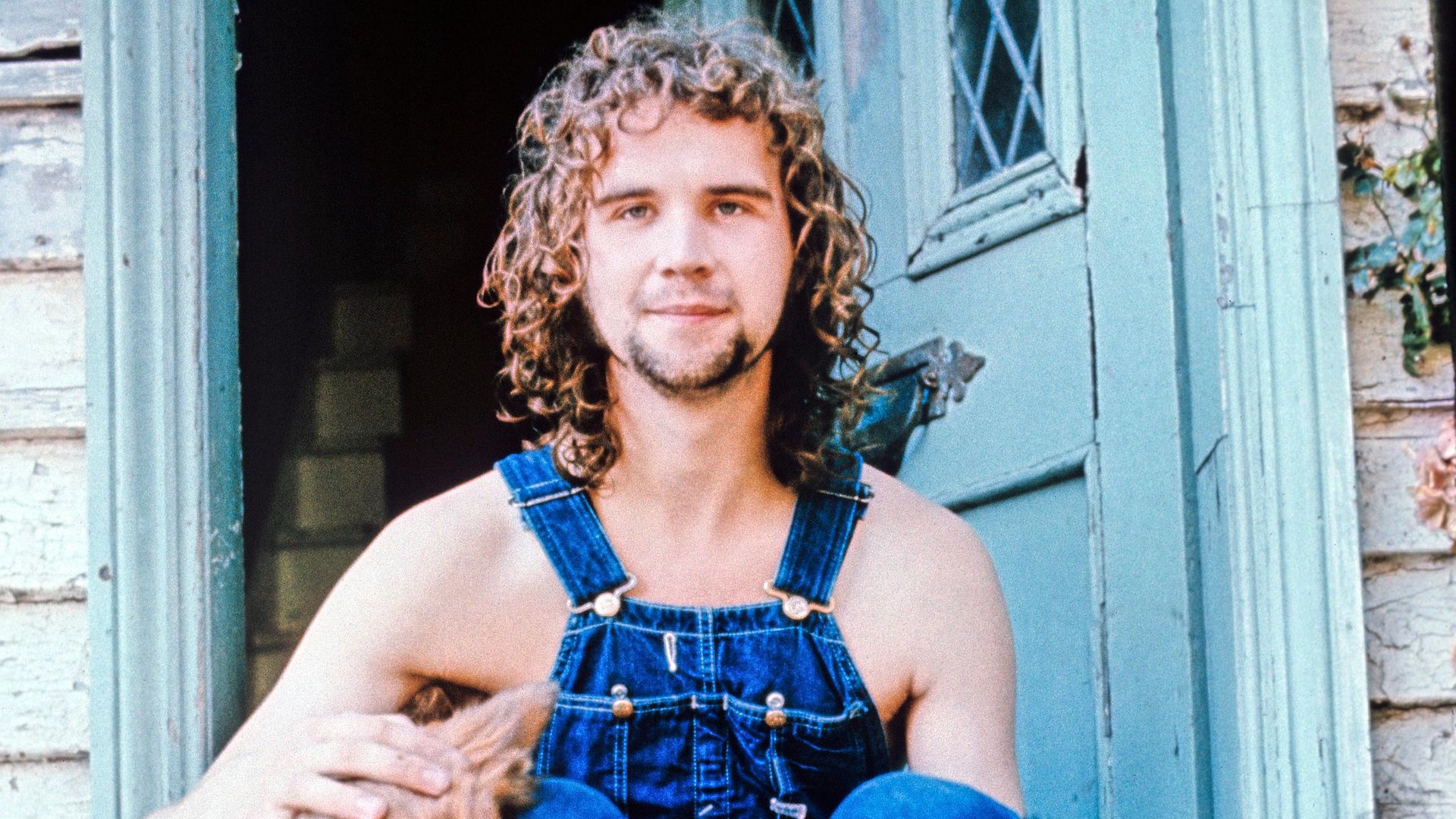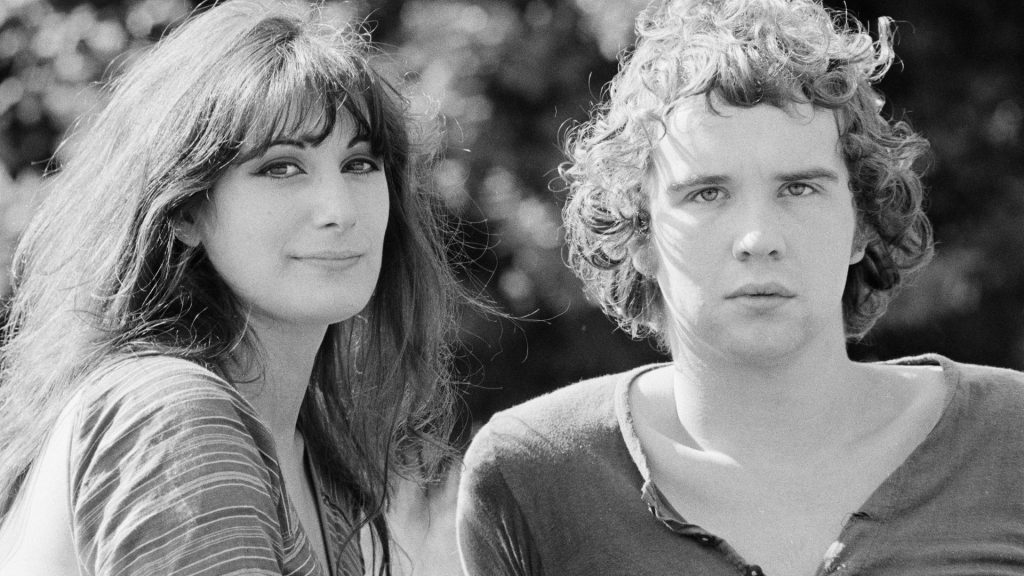
A new biography of singer-songwriter John Martyn perfectly captures his flair, as well as his flaws, says GARTH CARTWRIGHT.
Newly settled in London in 1992, one evening I ventured from my Forest Gate base to the Half Moon in Putney – an epic east to west hike for a gig – to see John Martyn. I was familiar with the Scottish musician’s 1973 Solid Air album and little else but instinct suggested that I should take the opportunity to see him. All these years on and I’ve never forgotten that evening, the way Martyn led his band through a folk-rock-jazz fusion quite like nothing else I’ve ever heard before (or since), the music flowing over us, inspired and inspiring.
So much so in 1994 I ventured on another long trek: to the Mean Fiddler in Harlesden to see Martyn playing solo acoustic. Obviously drunk, Martyn was intent on getting more so as adoring audience members passed him shots and spliffs in between songs.
He accepted everything proffered, broke strings, cackled, staggered, stumbled and barely played anything worthy of his talent. It was pitiful, the sight of this gifted musician making a mess instead of music. Two years on from that, Martyn was at the Royal Festival Hall – a far larger venue than the Half Moon and Mean Fiddler. It suggested an upturn in his fortunes and, as I went along, had me hoping he would once again conjure up magic.
Rising star Beth Orton opened proceedings and informed the audience how, excited to meet Martyn, she entered his dressing room with a big spliff as a gift. Thing is, Orton added with a giggle, he declined, being on the wagon.
I felt relieved to hear of his sobriety but when he took the stage – dressed in an Armani suit and wearing mirrored sunglasses, so looking every inch the 1980s era rock star – he appeared tense and sounded even more so. Nothing flowed – joy and improvisation were absent – and I left well before his performance finished.
After that I occasionally listened to Martyn’s new releases – the likes of Massive Attack and Paul Weller championed him and he attempted to update his sound to accommodate their audiences – but the magic was long gone. In 2003 a surgeon amputated his right leg beneath the knee, Martyn’s toxic lifestyle poisoning his body.
He soldiered on, continuing to tour and drink, his death in January 2009, aged 60, surprising no one. If Martyn had destroyed his talent decades prior it remains undeniable that, in the early 1970s, he was a force to be reckoned with.
Indeed, he tore British ‘folk’ music apart in a manner comparable to what Bob Dylan had previously done to US folk. But Dylan remained focused, moving forward, while Martyn ran, time and again, hard into the wall.
Just how hard is detailed in Small Hours: The Long Night of John Martyn (Omnibus Press), Graeme Thomson’s biography of the man being both definitive and extremely depressing.
I now realise how fortunate I was to have caught his extraordinary 1992 performance as, ever since the mid-1970s, his gigs were, more often than not, closer to my Mean Fiddler experience.
If Martyn often treated audiences with contempt that’s nothing compared to how he behaved towards the women in his life: Small Hours ensures Martyn will now be ranked alongside the likes of Ike Turner and Miles Davis – not because he matched the US mavericks in talent (he didn’t); instead, they all traded in extreme levels of domestic violence and abuse.
Martyn’s bad behaviour towards his first wife, Beverley Kutner, has long been public knowledge (oddly, I am certain she joined him on-stage at the Half Moon – this ‘reunion’ goes unmentioned in Small Hours). A gifted folk singer with her own record deal, Kutner and Martyn’s relationship must have initially appeared to have been made in heaven.

Once married he put her through hell, smothering Kutner’s career and life. What Thomson’s biography makes clear is that it wasn’t simply Kutner who suffered at Martyn’s hands – he was a human hurricane who left a trail of carnage behind him.
John Martyn was born Ian McGeachy in Surrey to opera-singing parents; they divorced when he was five and he was subsequently raised in Glasgow by his father. A bright student and gifted musician, like many middle class boys of his generation (he was born in 1948) he became enamoured with Bob Dylan and the Mississippi Delta’s acoustic blues musicians. Settling in London in 1967, he adopted the stage name John Martyn and signed to Chris Blackwell’s fledgling Island Records, his debut album London Conversation released later that year. Its an unremarkable debut, very much cut from the cloth that many British singer-songwriter folkies were then wearing, and garnered little attention.
Martyn soldiered on and would soon find himself at the epicentre of the British folk rock revolution. Married to Kutner and living in Hampstead, his best friends were fellow folkies Richard Thompson and Nick Drake.
All three were signed to Island, produced by American expatriate Joe Boyd and remarkably gifted (and individual) guitarists. Thompson enjoyed immediate success as a member of Fairport Convention. Drake failed to attract either critical or commercial attention. Martyn, with 1971’s Bless the Weather (his fifth album, following two shared efforts with Beverley), won a loyal (if not large) audience.
Running his acoustic guitar through effects pedals and employing jazz phrasing in his vocals, he developed into a unique artist, sounding like no other.
Solid Air, from 1973, is Martyn’s apogee, the music beautifully dense and ambient, a sound listeners can bathe in. The title track finds Martyn reaching out to Drake, his friend having retreated to his family mansion in despair at his music’s failure (Drake would die from an overdose of anti-depressants in 1974).
Martyn released another three albums across the 1970s, all have their moments but his addictions – consuming huge quantities of alcohol, cocaine, hash – and increasingly boorish behaviour blunted his muse. While he did enjoy a greater (if brief) degree of commercial success in the 1980s (with Phil Collins producing) those albums are overblown and insignificant.
Small Hours details all this unflinchingly. Interviewees often describe the young Martyn as “beautiful” but, as Thomson notes, by the mid-1970s he was already resembling more a boozy snooker player than the angelic folkie of a few years earlier.
Thomson also notes that heavy substance abuse and domestic violence were largely tolerated (or ignored) across this era. Yet even accepting this, Small Hours proves shocking: it depicts Martyn’s brutal treatment of the women in his life and complete indifference to his four children (once the women inevitably fled) suggesting a sociopath.
Martyn liked to present himself as a man’s man who loved boozing and brawling, fishing and hanging out with villains – unsurprisingly, his most famous song, May You Never, is a hymn to male bonding/loyalty. Its on Solid Air and the only song I skip when listening to this otherwise superb album.
Speaking of male bonding, Martyn’s relationship with Drake was complex (if loyal). Beyond their respective age and musical similarities, they were cut from very different cloth, Drake being introspective, asexual, unable/unwilling to communicate with an audience.
Thomson doesn’t note Martyn’s response to Drake’s posthumous fame – by the 1990s many listeners had embraced Nick as a Chatterton/Rimbaud-style song-poet and his three albums, which had previously only sold a few thousand copies, began selling hundreds of thousands of copies. No one would have mistaken the rambunctious Martyn for the fragile Drake but his best work serves as a yin to Drake’s yang, both musicians creating a uniquely British folk rock.
Yet where Drake died young and left flawless albums, Martyn continued releasing ever more wretched product, a charmless Falstaff, bloated by booze and cocaine, quick to lash out.
Martyn occasionally sobered up, but only briefly. Richard Thompson and Danny Thompson (unrelated – the latter is a superb double bassist whose work graces Martyn, Drake and Thompson’s albums – he was also Martyn’s best friend, often in the worst sense, during the 1970s) both separately embraced Sufi Islam so to enforce their sobriety (and remain musically active today). Not Martyn, he was unrepentant, protected by his status at a time when rock stars were treated as gods, their bad behaviour worn like medals. Small Hours documents prehistoric times when brutes were given a free pass. Hopefully that era is as dead as the book’s subject.
Today, interest in Martyn’s best work continues to grow – thus the biography – and in Ed Sheeran’s pedal-driven, acoustic guitar songs its possible to see a votary of sorts. Albeit, one with none of Martyn’s edge or artistry. But also, thankfully, none of his barbarism.
Reading Small Hours didn’t change my mind as to Martyn’s best work (Bless the Weather, Solid Air, a handful of songs from Inside Out and his two albums with Beverly). What I now consider is that Martyn died alongside Drake, creatively-speaking, in 1974. Having said that, I’ll never forget just how alive he was that night at the Half Moon and the journey he took me on, then and (when listening to him) now.
Small Hours: The Long Night Of John Martyn is published by Omnibus Press









